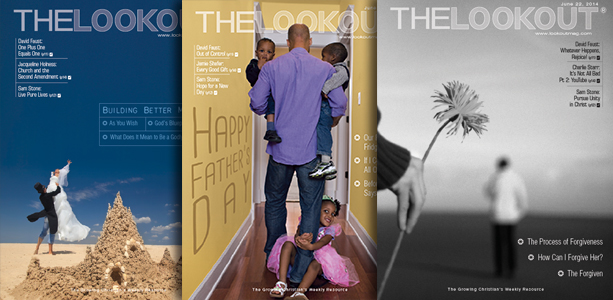By Sam E. Stone
 For the next two months we will study passages from 1 and 2 Corinthians as we learn priorities for the people of God. Paul helped found the church in Corinth. A few years later (perhaps around AD 57), he sent a letter back to the congregation. After an introduction in which he reminded them of his apostolic role, Paul offered a prayer of thanksgiving. In today’s printed text he turns to one of the primary reasons for his letter.
For the next two months we will study passages from 1 and 2 Corinthians as we learn priorities for the people of God. Paul helped found the church in Corinth. A few years later (perhaps around AD 57), he sent a letter back to the congregation. After an introduction in which he reminded them of his apostolic role, Paul offered a prayer of thanksgiving. In today’s printed text he turns to one of the primary reasons for his letter.
The Problem
1 Corinthians 1:10-12
Paul combined entreaty with authority as he wrote about unity. While he could have simply commanded their obedience (1 Corinthians 4:21), instead he graciously asked that all of you agree with one another. Unity and mutual love are foundational for Christ’s followers (John 13:34; 15:17; 17:21-23). There should be no divisions among you. The Greek literally says “no schisms” (1 Corinthians 11:18; 12:25). God desired that they be perfectly united in mind and thought. Some translations read “perfectly joined together,” suggesting the original meaning—restoring or mending something that had been torn apart. Christians are to display unity of speech, unity of organization, and unity of mind and judgment.
Some from Chloe’s household reported quarrels among church members. Nothing more is known of Chloe. Some Bible students feel she may have been a resident of Corinth who had family members living in Ephesus where Paul was.
Paul outlined the problem clearly. Believers were “choosing up sides” and arguing. Sects had developed. Each claimed allegiance to some individual and particular set of doctrines. Paul mentions first the group that claimed to follow him. No group is seen as better or worse than another, but all were wrong. Paul had founded the church. Apollos was a capable preacher who came later, after being taught by Aquila and Priscilla (Acts 18:24-26). Cephas is the Aramaic name of Peter, certainly a well-known and respected leader. Interestingly one group claimed they were just following Christ! William Barclay observed, “Their real fault was not in saying that they belonged to Christ, but in acting as if Christ belonged to them.”
The Appeal
1 Corinthians 1:13-17
Paul begins questioning his readers: Is Christ divided? After identifying the problem, the apostle challenged the Corinthian Christians to see the obvious answer. The church is Christ’s body. It cannot be cut apart and distributed to groups. Only Jesus died on the cross to save us (Hebrews 2:10). We are baptized into Christ, not into some individual or local church (Galatians 3:27).
In saying he was thankful to have baptized only Crispus, Gaius, and Stephanas, Paul is certainly not making baptism less important here. Instead he is saying, “I wouldn’t want to give those who are dividing the church a leg to stand on!” He had not personally performed all of the baptisms there over the years. Silas, Timothy, and others undoubtedly helped. This was in keeping with the practice of Jesus who, even as he commanded baptism, left the actual baptizing up to his disciples (John 4:1, 2). Paul did not personally have to immerse all who came to believe in Jesus. His main duty was to proclaim the gospel message.
The Solution
1 Corinthians 3:4-9
In following Paul or Apollos, he asks, “Are you not mere human beings?” No man deserves the loyalty we must give Jesus. Why should the Corinthians single out these former preachers for special praise, and why form a sect around each? They are only servants . . . as the Lord has assigned to each his task. God gave them gifts to use (Romans 12:3, 6). They were the slaves; God was the master. They were only doing their duty (Luke 17:10).
I planted the seed, Apollos watered it, but God has been making it grow. Paul was a pioneer preacher (Romans 15:20); he first took the gospel message to the Corinthians (2 Corinthians 10:13). Apollos arrived after Paul left and continued to build up the church. Anything that either Paul or Apollos had done was accomplished by God’s power working in them.
Neither were anything in comparison to God (1 Corinthians 1:28). You are God’s field, God’s building. Paul added a construction illustration to the agricultural one. The church doesn’t build itself; God does it. Three times in verse 9 the word God comes first, showing that human workers do not matter; only God deserves praise for all that is accomplished.
Sam E. Stone is the former editor of Christian Standard. He continues his writing and speaking ministry from his home in Cincinnati, Ohio.



Comments: no replies